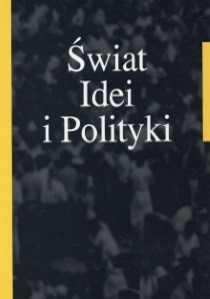The organized crime in Poland after 1989 – Pruszkow and Wolomin
DOI:
https://doi.org/10.34767/SIIP.2018.17.15Keywords:
crime, transformation, system, mafi a, PolandAbstract
The collapse of the Eastern Bloc in 1989 has led to meaningful social, political and economic transformations. The destabilization of
polish country, during changes in political system, started the development of the organized crime, abusing the authority and investigative authorities’ weakness. The 90’s are the greatest time of two, coming from Warsaw, groups, which managed to subordinate the whole criminal country – Pruszkow and Wolomin. The “mafi a decade” of Pruszkow and Wolomin is the time of: earning enormous fortune, spectacular events and extremely bloody war, carrying a huge number of victims. 90’s is also the time of using experience in creating eff ective system of fi ghting against organized crime. Introducing in 1997 the term of crown witness
– “apologetic criminal” became the decisive moment. Spectacular end of Pruszkow was the eff ect of the statement of crown witness – gangsters aggravating their cooperatives. It is all mostly about Jaroslaw Sokolowski, nickname “Masa”. His statement appeared crucial during investigations at the most important members of Pruszkow’s group. Sokolowski`s “fl awlessness” as a crown witness, is not clear, in spite 20 years lasted from mentioned incident. The case of Pruszkow and Wolomin presents the danger for country`s safety, what comes from the side of organized crime, during political transformation.
References
Bagsik B., Gąsiorowski A., Pytlakowski P., Ścigani. Piotr Pytlakowski rozmawia z szefami Art.-B, Warszawa 2015.
Banasiak M., Pytlakowski P., Królowa mafii, Poznań 2016.
Filipkowski W., Zwalczanie przestępczości zorganizowanej w aspekcie finansowym, Kraków 2004.
Górski A., Sokołowski J., Masa o bossach polskiej mafii, Warszawa 2018.
Górski A., Sokołowski J., Masa o pieniądzach polskiej mafii, Warszawa 2014.
Górski A., Sokołowski J., Masa o porachunkach polskiej mafii, Warszawa 2018.
Górski A., Sokołowski J., Masa o życiu świadka koronnego, Warszawa 2017.
Latkowski S., Pytlakowski P., Koronny nr 1. Pseudonim Masa, Poznań 2017.
Majewski A., Maringe J., Chińczyk – król polskiego narkobiznesu, Warszawa 2017.
Mądrzejowski W., Przestępczość zorganizowana. System zwalczania, Warszawa 2008.
Miczkowska A., Problematyka przestępczości zorganizowanej, [w:] Prace wydawnicze, administratywistyczne i historyczne, red. M. Sadowski, P. Szymaniec, Wrocław 2009.
Niewiadomski H., Świat według Dziada, Warszawa 2002.
Ornacka E., Pytlakowski P., Nowy alfabet mafii. Najnowsze losy polskiej przestępczości zorganizowanej, Poznań 2013.
Pływaczewski E.W., Przestępczość zorganizowana, Warszawa 2011.
Pytlakowski P., Wróbel P., Mój agent Masa, Poznań 2015.
Rau Z., Cechy polskiej zorganizowanej grupy przestępczej, „Prokurator” 2002, nr 1.
Ustawa z dnia 6 czerwca 1997 r. – Kodeks karny, Dz.U. 1997 nr 88 poz. 553 z późn. zm.
Ustawa z dnia 25 czerwca 1997 r. o świadku koronnym, Dz.U. 1997 nr 114 poz. 738 z późn. zm.

